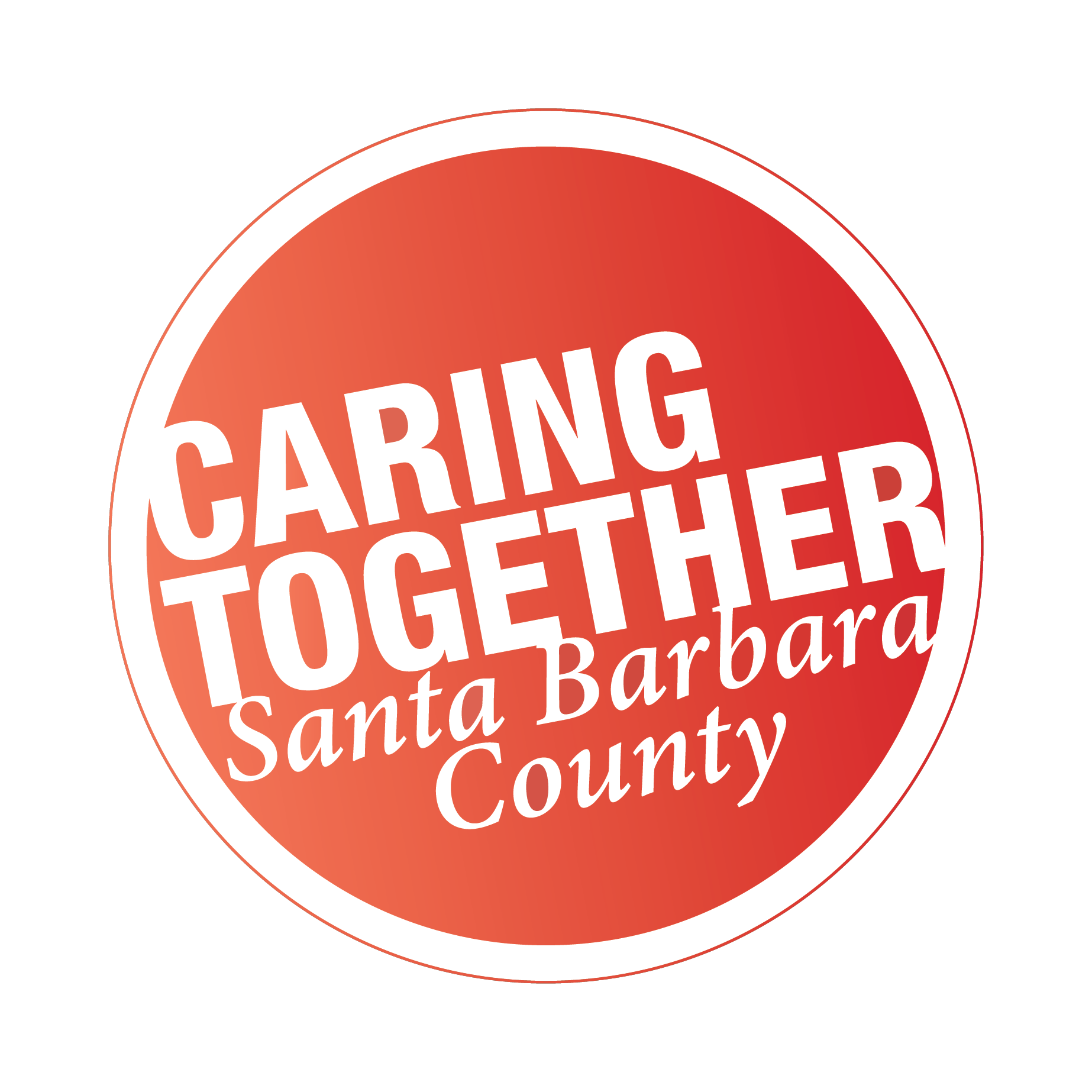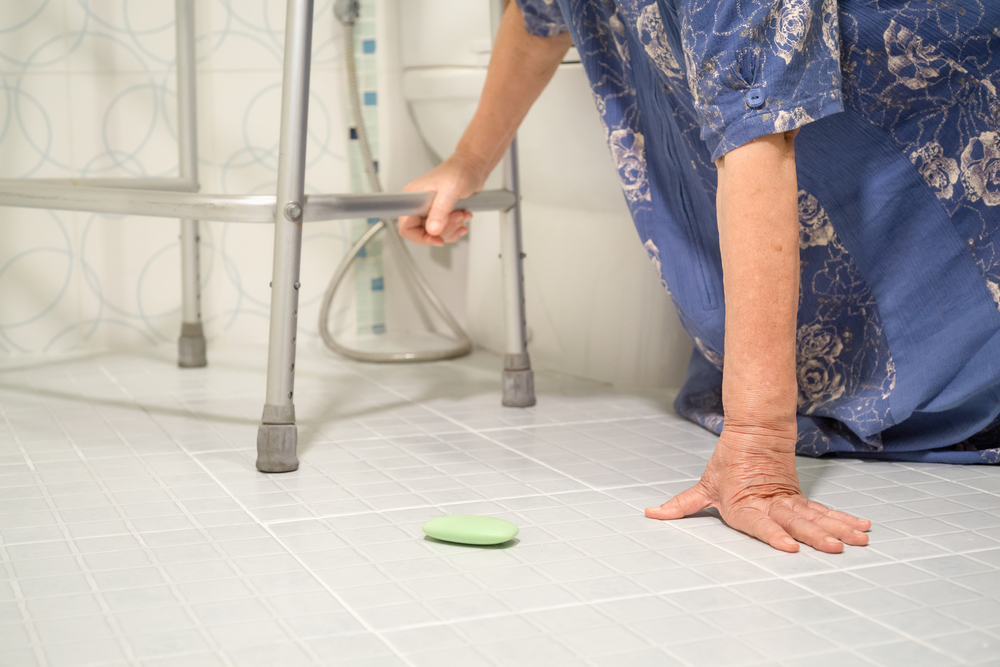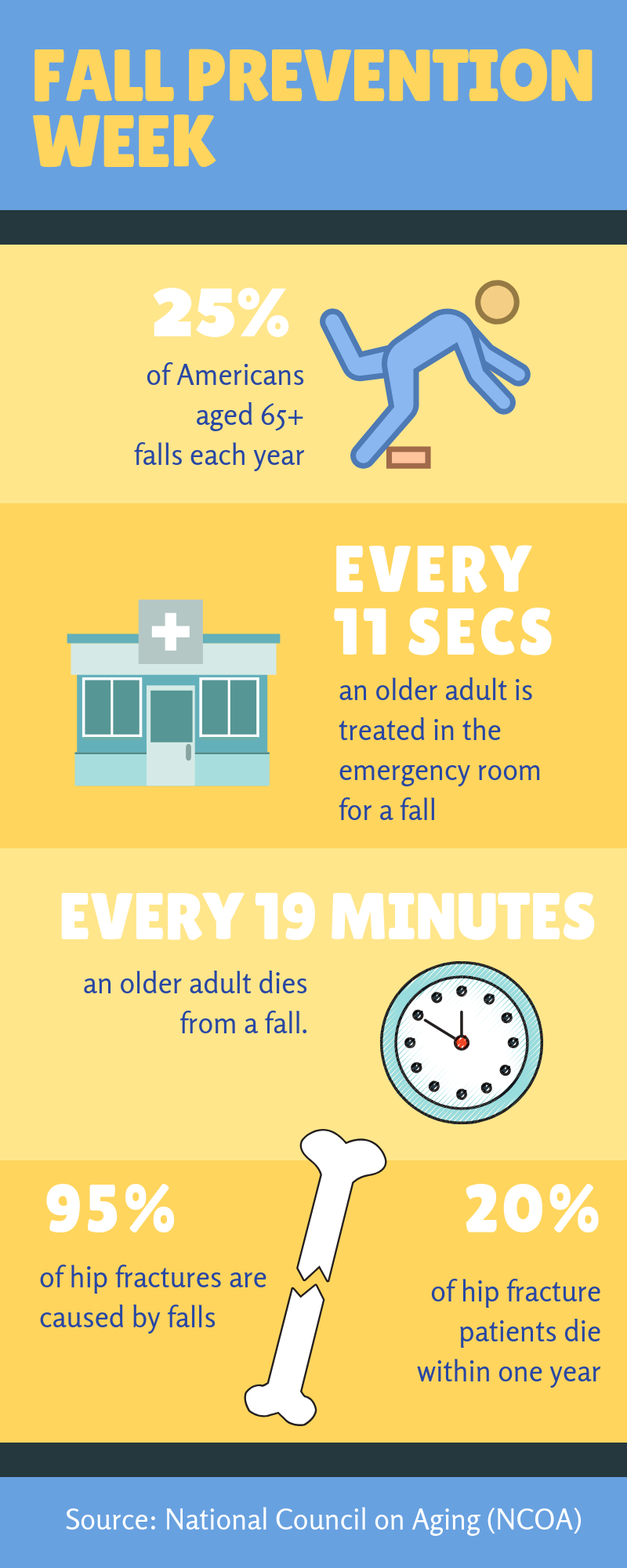By DeAnn Rosenberry, MA, LMFT
Senior Services Program Manager, Family Service Agency
Fall Prevention Awareness Week
The air feels crisp; and the leaves are beginning to change colors. Fall is here! While we can’t stop Fall from coming, we can stop another kind of fall. Fall Prevention Awareness Week doesn’t mean that we’re trying to prevent one of our favorite seasons! Instead, we are bringing awareness to the seriousness of falls that our older adult family members and friends face, and the unfortunate consequences of these falls—injury and hospitalization to a decline in quality of life and independence, and even death.
Falls are the leading cause of fatal and nonfatal injuries for those folks 65 and over. Every 11 seconds, an older adult is treated in the emergency room for a fall. Every 19 minutes, an older adult dies from a fall. Additionally, an increasing number of older adults fear falling, and consequently reduce their activities and social interactions. Any reduction in activity can also lead to physical decline, depression, social isolation, and feelings of helplessness.
These are staggering statistics. If you are helping to care for an elderly friend or family member, this is particularly important to you and your loved ones.
The good news I that falls are preventable! As caregivers, we can take steps to reduce the risk of falls for our loved ones.
Step One: Address Any Health Issues
According to the National Council on Aging (NCOA), we can start by assessing our loved one’s current health conditions. Is there a concern regarding falling, dizziness, or balance? Are there health issues contributing to forgetfulness around taking medications? Do side effects of any medications contribute to the risk of falling? Discuss medication with your loved one’s doctor and pharmacist to determine if a side effect may be dizziness. You can take advantage of Medicare’s Annual Wellness Visit as a preventive measure. Remember to include health care providers as part of your fall prevention team.
Step Two: Schedule Vision Tests Annually
As we age, our retinas receive less light, and it may be more difficult to see contrasting edges, tripping hazards, and obstacles. Tint-changing lenses can also be unsafe when moving from brightly lit places to inside where, perhaps, it is darker. Remind your loved one to pause and take time to let their lenses adjust to the light. Bifocals can also be challenging as our loved ones navigate stairs and steps.
Step Three: Assess Your Loved One’s Balance
Notice if the person you are caring for is holding onto furniture, walls or other people when they walk. Your loved one may have a balance issue. Help your loved one find a balance and exercise program to build not only balance but also strength and flexibility to help reduce the risk of falling. Reach out to the Area Agency on Aging for resources and referrals.
Step Four: Conduct a Household Safety Check
Visit your loved one’s place of residence and conduct a household safety check. Is the lighting optimal? Can you improve lighting in critical areas such as the top and bottom of stairs. Other safety corrections may include installing grab bars in the tub, shower, and near the toilet. Think about adding a shower chair or a hand held shower nozzle. Last, but certainly not least, get rid of small throw rugs or use double-sided tape to secure area rugs to the floor to prevent tripping!
Step Five: Keep Them Active
Encourage your loved one to get out and participate in physical activities. Some older adults believe that if they stay at home and limit their activities they reduce their risk of falling. However, the opposite is true. Being physically active will actually help your loved ones stay independent and being social tends to improve mood and overall health!
Fall is here! Enjoy the changing seasons and perhaps make some changes with your loved one to help them avoid falls and maintain as much independence as possible!




For the safety of the elderly, install grip bars near showers, bathtubs, toilets, and beds. It will provide stability and great convenience. Thanks for sharing this article with us.
Thank you for mentioning how a person may have trouble maintaining their balance if you notice that they place their hands on walls as they are walking. My grandmother has been having a difficult time bathing ever since she had knee surgery last month, and I would like to find someone that can help prevent her from falling while I’m at work. Maybe I should find an in-home health care service to help keep her safe.
Guardians ought to likewise rely upon others to relieve their burden. This is significant particularly on the grounds that it has been normal for guardians to encounter physical issues, for example, constant agony in their muscles since they generally do the truly difficult work and moving of their patients on the head of doing various errands.
i like this article, it has a lot of info i need to know, thanks for sharing
Nice blog !!
https://sehagarden.com/
Thank you for sharing this blog !!!
https://sehagarden.com